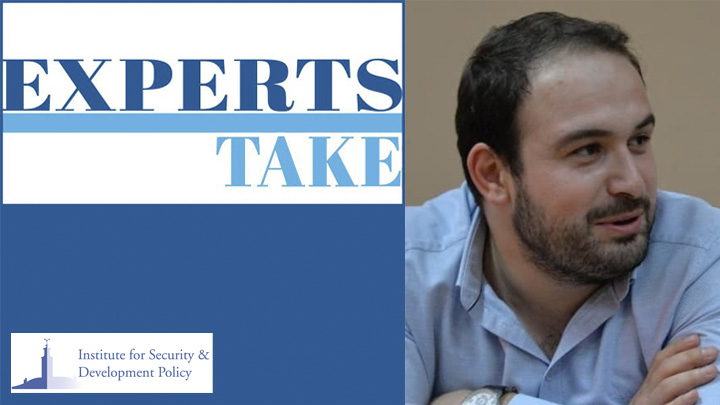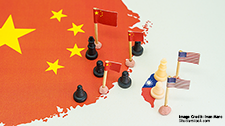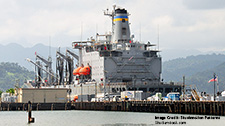Continuity and Change in Indonesia’s Past, Present, and Future Foreign Policy Agenda: An Interview with DR. TUFAN KUTAY BORAN

Nolwenn Gueguen
Ahead of the upcoming Indonesian presidential elections on February 14, 2024, ISDP’s Asia Program intern Nolwenn Gueguen sat down with Dr. Tufan Kutay Boran, Lecturer at the Department of Social Sciences at the University of Ankara, to understand Indonesia’s current foreign policy agenda and what is at stake when its citizens prepare to go to the polls.
Dr. Tufan Kutay Boran is a lecturer in Social Sciences at the University of Ankara. He holds his Ph.D. from Universitas Gadjah Mada /Department of Government and Politics. Dr. Boran generally works on Indonesian foreign policy and the impact of local actors on the foreign policy-making process. Dr. Boran has articles and book chapters on Indonesian foreign policy in English and Turkish.
Related Publications
-
ISDP Annual Report 2023
ISDP’s Annual Report for the year 2023. We look back on 2023, a year in which tensions and conflicts captured the strategic space in ISDP’s focus areas, making headlines around […]
-
Taiwan-PRC Crisis: What Cross-Strait Conflict Could Cost Europe
The escalating tensions between Taiwan and China pose significant economic and strategic challenges to the European Union, such as the inaccessibility of Taiwanese inputs, market, and capital. This issue brief […]
-
EU-Thailand FTA Negotiations: IUU Fishing and Human Rights Remain Obstacles
Thailand’s fishing industry, which at its height saw as many as 200,000 migrant workers from neighboring Laos, Myanmar, and Cambodia caught in a brutal system of abuse, withered global criticism […]
-
India-Japan-Philippines: A Strategic Maritime Trilateral or More?
Regional states like India, Japan, and the Philippines have been seeking cooperative solutions with other middle powers that can both counter the Chinese influence and fulfill other economic as well […]
-
South Korea’s Indo-Pacific Strategy, Atmanirbhar Bharat, and the IPEF: Convergence and Commonality
For some time now, the existing multilateral networks such as those of the United Nations (UN) system have been largely ineffective in providing good global governance and helping create resilience, […]




